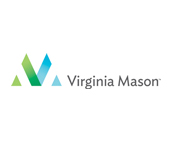 Virginia Mason is becoming an organization that routinely listens to and deeply understands customers’ experiences. This goal is embedded in Virginia Mason’s strategic plan, which puts the patient at the top and sets the direction of providing an extraordinary patient experience and systemizing breakthrough innovations by deliberately incorporating the voices of our patients and families. Our approach involves (1) the use of experience-based design methods to understand the emotional experiences and touch points of patients and families; (2) a patient-family partner program embedding these volunteers in improvement work; and (3) integration into our improvement methodology—the Virginia Mason Production System.
Virginia Mason is becoming an organization that routinely listens to and deeply understands customers’ experiences. This goal is embedded in Virginia Mason’s strategic plan, which puts the patient at the top and sets the direction of providing an extraordinary patient experience and systemizing breakthrough innovations by deliberately incorporating the voices of our patients and families. Our approach involves (1) the use of experience-based design methods to understand the emotional experiences and touch points of patients and families; (2) a patient-family partner program embedding these volunteers in improvement work; and (3) integration into our improvement methodology—the Virginia Mason Production System.
Nomination Narrative
The patients and family members at Virginia Mason are not just taking an advisory role – they are directly informing and helping design solutions.
In 2013-2014, Virginia Mason:
- Firmly established the processes for collecting experience-based design (EBD) data and certified more leaders (for a total of 86 to date) through in-depth training. Experience-based design includes social science observations, open-ended interviews and an experience questionnaire method focused on an understanding of the experiences and emotions of those who are involved in receiving and delivering healthcare services. The approach helps to identify what really matters to customers. In addition to the methods providing valuable data for countless improvement workshops, the 86 leaders in training conducted their own unit-level projects using EBD data.
- Established a focus on systematically co-designing solutions with our patients and families whenever possible. In addition to smaller, organic co-design efforts (e.g., reviewing educational materials, contributing ideas about a specific problem), we have initiated three large-scale co-design projects to date around pancreas cancer, total joint replacement education and delirium. For these efforts, large samples of EBD data were collected to inform the improvement work (a combined 20 observation hours, 119 interviews and 718 questionnaires) and patients/families have joined improvement activities.
- Launched the patient-family partner program, with 117 patient-family partners signed on as volunteers to date to be part of improvement activities and 87 having participated in at least one activity so far. This program is proving vital in supporting a range of co-design work. A software system just implemented is starting to let on-boarded patient-family partners scan for available improvement activities and sign up on their own.
- Integrated the above strategies into our lean improvement methods. The Virginia Mason Production System, based on the Toyota Production System, serves as the organizational management system. A principal tenet is that value is defined by the customer. Integration into VMPS tools, processes and the education program is enriching the organization’s ability to create sustainable patient-family engagement in shaping the systems and processes that serve them.
- This approach is fueling meaningful change and innovative solutions. Patients and families help identify assumptions and mental valleys that we wouldn’t necessarily identify on our own; this is a foundational step to fostering innovative thinking about solutions.
Some examples of assumptions patients and families have helped us bust:
- All waiting rooms are bad, e.g., in one pediatrics clinic, they discovered that parents of newborns liked the few minutes of social interaction with each other and group support.
- Patients’ experiences are shaped by what is going on with them directly (e.g., observing how other patients’ situations are being handled can have just as much of a positive or negative impact).
- A family member always knows the patient best and can provide important details about their cognitive functioning (maybe it’s a neighbor, a friend, a skilled nursing facility employee, etc.).
- Patient and family/caregiver companion’s experiences are the same, and the patient and clinical team’s experiences are always very different.
- Patients are focused primarily on the clinical outcome (in the pancreas cancer work, we learned they cared as much about the journey as the outcome).
This year, we are continuing to certify people in EBD, opening up the training to frontline staff and providers. We are progressing the large-scale co-design efforts, refining the patient-family partner program and working on how to reliably collect experience re-measures in targeted care processes given the qualitative nature of the EBD data.
Results
Evidence is strong these strategies are yielding a value-added level of patient/family engagement. Solutions directly shaped by patients/families are being tested or implemented. Examples include:
- A “Know Me” form emerging from the pancreas cancer work that patients complete to ensure their care team really understands their needs and preferences has started to spread into other clinical areas.
- The Cardiothoracic Surgery clinic is testing delirium-related ideas of great interest to patients/families. And EBD data revealed significant distress among many patients post-hospital stay about their experience with delirium, prompting an improvement workshop to occur this spring.
- Several patients influenced improvement of the procedural informed consent process now implemented house-wide, helping a “stuck” effort get traction and leading to direct involvement of providers in reviewing consent details with their patients.
Testimonials about the benefits of EBD data and patient/family involvement also are becoming routine. Examples include:
A patient who was part of the pancreas cancer redesign team: “I’m a seven-year survivor of pancreas cancer….Working on this project team takes (patient input) to a whole new level. The passion with which the team wants our input as patients and wants to learn from our experiences, is very empowering – it has really been a privilege and an honor to be part of this group.”




